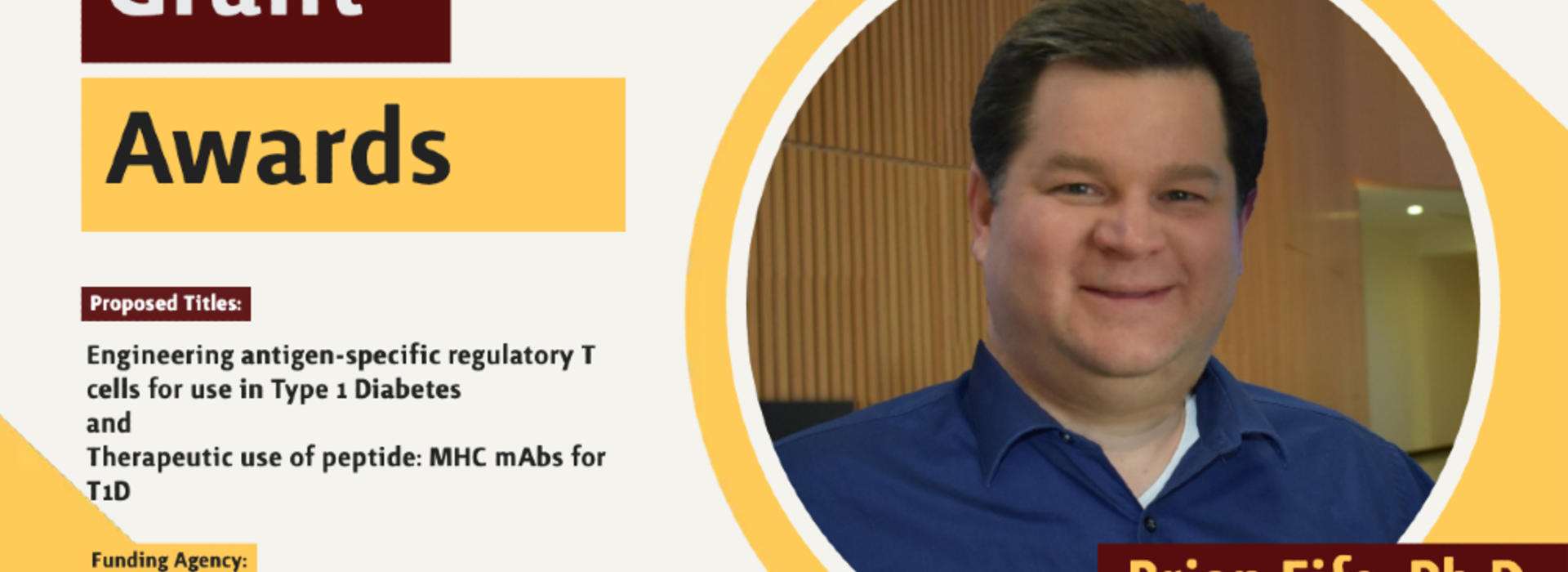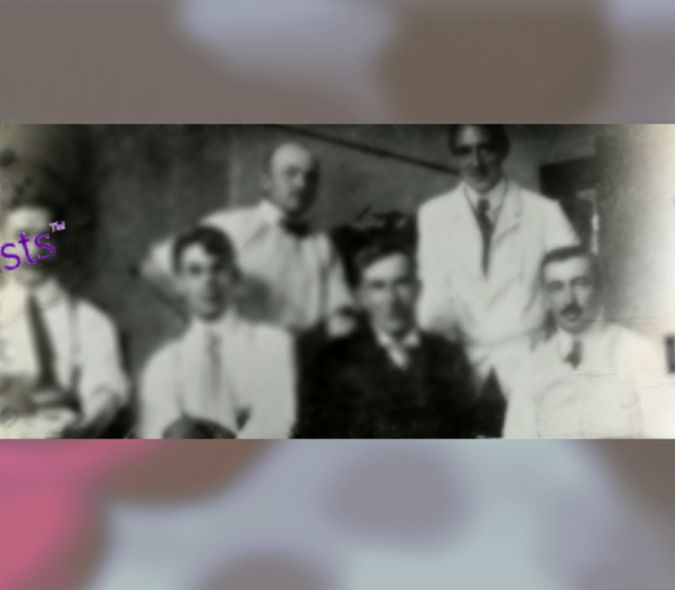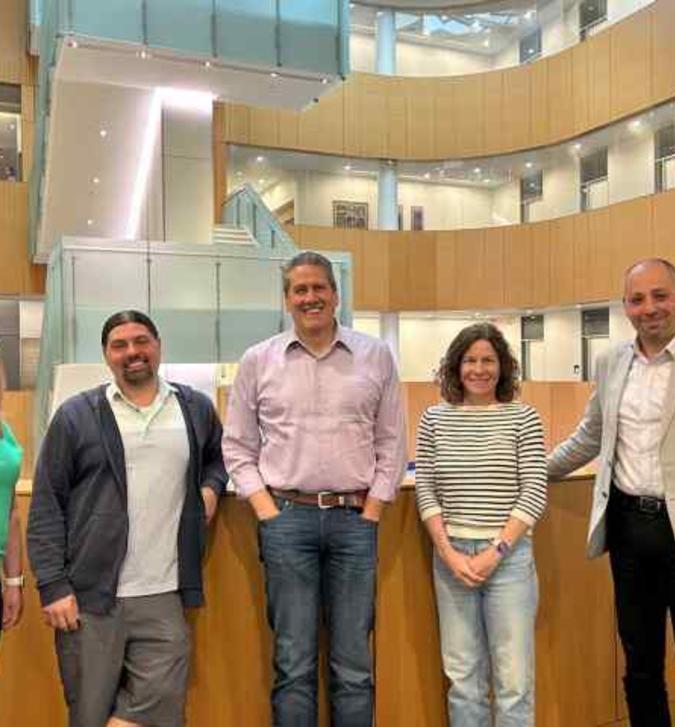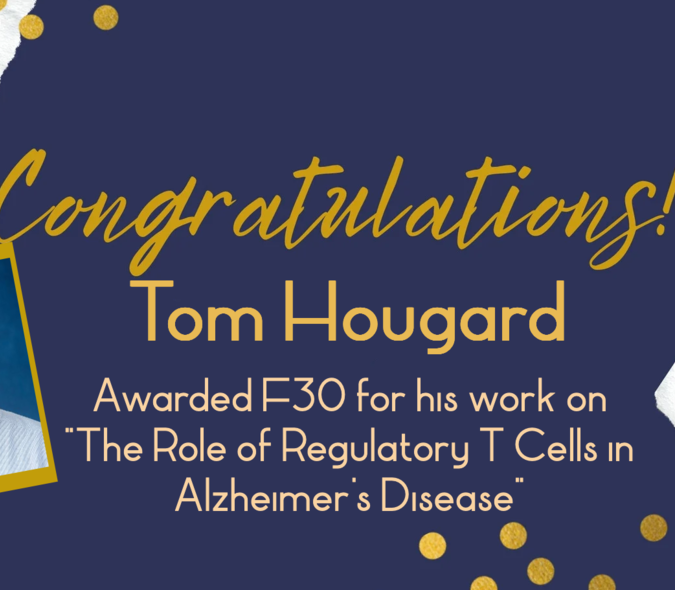
Brian Fife, Ph.D. receives two grants from The Leona M. and Harry B. Helmsley Charitable Trust
Congratulations to Brian Fife, Ph.D., and his team. The Fife lab was awarded two grants from The Leona M. and Harry B. Helmsley Charitable Trust.
The grants: Engineering antigen-specific regulatory T cells for use in type 1 diabetes and Therapeutic use of peptide: MHC mAbs for T1D are to continue their work on CAR-Tregs and mAb as therapeutics for Autoimmune diabetes.
The Fife lab is focused on understanding the fundamental mechanisms that regulate T lymphocytes during autoimmune diseases such as Type 1 diabetes mellitus (T1DM). T1DM is an autoimmune disorder resulting from the T cell-mediated destruction of the insulin-producing cells within the pancreas. At the root of autoimmunity lies the most important aspect of immune regulation, the ability to discriminate between self and non-self. This highly selective response is characterized by a complicated set of mechanisms that regulate T lymphocyte activity. Autoimmunity results when these mechanisms fail. The Fife lab has generated a powerful treatment protocol to selectively target autoreactive cells. Using this type of approach allows the lab to re-educate the immune system to selectively silence destructive immune responses. In effect, it restores a state of self-tolerance and prevents further tissue destruction. Two key regulatory pathways have been identified that control diabetes and promote tolerance, Cytotoxic T lymphocyte antigen-4 (CTLA-4) and Programmed Death-1 (PD-1). The Fife lab has shown that these pathways control both anergy induction and long-term maintenance of tolerance. Using their tolerance protocol allows them to determine the precise roles of these negative regulatory pathways at different stages during disease pathogenesis to control immunity and enhance tolerance. More recently studies have been focused on T1DM therapies including the use of regulatory T cells or Tregs. In addition to this approach, several projects focused on the generation of chimeric antigen receptor T cells or CAR T cells are also being worked on. These projects will determine if antigen-specific approaches will be a viable therapy for autoimmunity.
For recent publications about the Fife lab's research go here



